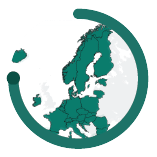All official European Union website addresses are in the europa.eu domain.
See all EU institutions and bodies

Key message
Get politicians on board to show their commitment to climate adaptation action, ensuring it remains a top priority in your local or regional authority.
Long-term political support is essential for planning and implementing climate adaptation. A supportive political environment helps coordination between organisations in different sectors and to allocate resources effectively.
Political backing can be encouraged by commitments from higher levels of government, such as European or national authorities. The EU's strategy on adaptation to climate change (2021) highlights the importance of supporting and recognising adaptation efforts across all levels of government.
What are the key EU policies supporting climate adaptation?
At the regional level, top-down regulatory measures may drive political commitment. For instance, national adaptation strategies and plans might mandate local and regional authorities to develop policy documents, offering technical support and financing mechanisms. National requirements for adaptation planning at local and/or regional levels are in place for several countries, like Croatia, Denmark, Finland, France, Germany, Greece, Ireland, Latvia, Portugal and Sweden.
Increasingly, European local and regional authorities are moving forward with adaptation policymaking through voluntary and bottom-up approaches. Many demonstrate their commitment by taking part in international initiatives like the following:
311 local and regional authorities have pledged their support for this mission, taking a significant step towards securing long-term political backing for their adaptation efforts.
Local and regional authorities can commit to climate action by becoming signatories, territorial coordinators, or supporters of the covenant. Local authorities commit to submitting a sustainable energy and climate action plan. Regional authorities offer help in the network with planning and implementing adaptation measures.

DK2020 network
In Denmark, although it is not obligatory, most municipalities review and update their local adaptation plans regularly – either in connection with municipal plans, or as part of DK2020, a voluntary Danish city network. The DK2020 initiative is based on a standard developed by C40 Cities. Participating in the network ensures all Danish municipalities use the same standard for planning climate action and illustrates the political support and leadership for climate adaptation across the country.

Climate pacts
In Luxembourg, all 102 municipalities are involved in climate mitigation and adaptation planning through the Climate Pact. As part of the pact, the national government provides municipalities with financial support to implement mitigation, energy efficiency, and adaptation measures. The Climate Pact enables coordination between the national and local governments and encourages municipalities to take action in line with national climate adaptation commitments.

Flemish Climate Pact
The Flemish Local Energy and Climate Pact (2021) breaks down EU climate goals into 10 tangible targets across four domains – green infrastructure, mobility, sustainable energy and water. In Flanders, 293 local authorities have signed on to the pact, signalling political support and leadership for adaptation in this Belgian region.

Nicosia, Cyprus: Building Climate Resilience through Political Support and Collaborative Action
By leveraging support from the European Commission and fostering collaboration with civil society, Nicosia has made significant progress in building climate resilience. The Cyprus Energy Agency (CEA), as the local representative of the Covenant of Mayors (CoM), has played a pivotal role in aligning local and national stakeholders to drive forward Sustainable Energy and Climate Action Plans (SECAPs) and other climate initiatives.
A key factor in these efforts has been securing political backing, which has enabled:
- Rural Communities Fund: This fund supports adaptation actions in underserved areas, ensuring equitable climate resilience measures.
- Technical guide on nature-based solutions (NBS): This guide, developed with the buy-in of policymakers, empowers local authorities and communities to implement actionable measures against climate change.
- River-based NBS projects: These initiatives, carried out in partnership with the Water Development Department, Town Planning Department, Ministry of Interior, and Department of the Environment, have benefited from high-level political coordination and support to ensure effective implementation.
By aligning civil society efforts with strong political will, Nicosia is creating a framework for sustained climate action and resilience-building across the region.
Resources

Climate-ADAPT Country Profiles
Shows the status of national adaptation planning per country. Regional adaptation plans are more likely to gain political support from other levels of government if they align with national adaptation goals and objectives. In some cases, national adaptation strategies and plans mandate local authorities to develop their own adaptation plans or strategies.

Urban Adaptation in Europe: What works?
Provides an overview of urban adaptation in Europe, including challenges and approaches to building resilience. Chapter 13 describes how effective governance makes it easier to coordinate adaptation measures and ensures cross-sectoral involvement of stakeholders, including community members.

European Climate Pact
Part of the European Green Deal, the Pact unites communities and organisations to combat climate change. Explore the website to find organisations tackling climate change, discover inspiring projects, and learn how to get involved.
Language preference detected
Do you want to see the page translated into ?




